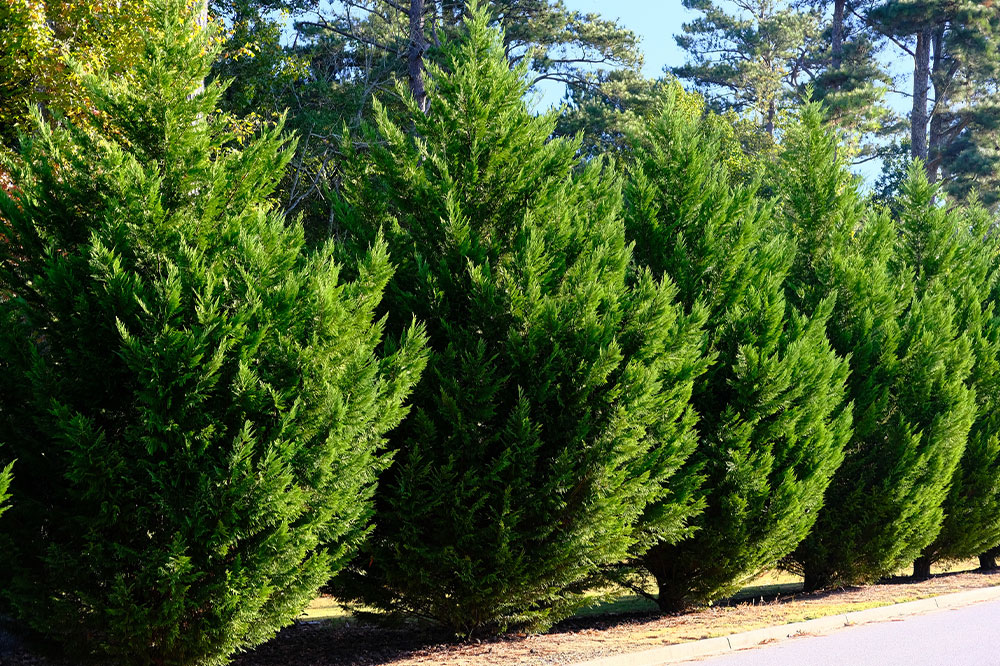Top 6 Fast-Growing Shrubs That Secure Your Privacy
Safety and security are among the top concerns of homeowners. Fencing is the most popular way of securing one’s home. But not everyone would prefer to fence the perimeter of their property. Further, it can be a costly affair , and not everyone would want to shell out that kind of money. In this case, individuals can plant some fast-growing, easy-to-maintain shrubs that will keep them protected and give their yard a fresh look.
Skip laurel shrubs
It is one of the most commonly planted and fast-growing shrubs that guarantees privacy for homes with large backyards and gardens.

Common lilac
Flowering shrubs add more color and vibrance to the landscape. At the same time, they protect your privacy from peeping toms luring you around behind the bushes. And the common lilac is one of the top picks, known for its fantastic shade of fragrant lavender blooms. The classic lilac shrub grows well in extreme weather conditions, with an average height of 8–15 feet and a thickness of 6–12 feet. The common lilac can even withstand temperature dips up to -30°F, making it a great fast-growing shrub for northern states and areas of heavy snowfall. The plant naturally covers a lot of ground, making it the ideal pick among fast-growing shrubs for privacy in suburban homes. And the blooms during springtime are simply mesmerizing, masking the entire garden in lavender fragrance.
Heavenly bamboo
One of the newer varieties of shrubs that homeowners are interested in planting is the heavenly bamboo. While the plant may not grow as tall as the Skip laurel or the common lilac, its distinct extra-wide growth and changing blooms make it a point of interest in the garden. In the summer, the foliage turns a unique bluish-green tint, whereas throughout the spring and fall, the leaves turn red. As winter approaches, the foliage changes color again, with an orangish shade that changes with the weather and temperature. At its peak height, the heavenly bamboo only grows up to 3.5 feet and maintains about the same width. So, homeowners should ideally plant the bamboo with taller shrubs in the background to add more variation to the foliage. The taller shrubs for privacy block views behind. The bamboo shades planted in front provide a distinct range of shades that change with the season.
Arctic willow
You must have seen these huge round bulbs of greenery commonly grown in public parks and nature resorts, placed along the sides of walking paths. Arctic willows provide a ton of shade and can be shaped to cover maximum ground, ensuring complete privacy. Firstly, these shrubs grow fast and reach a maximum height of 15 feet. The shrubs also grow close to the ground roots to get that distinctive halogen bulb shape, with a maximum width of 15 feet. The shape will vary depending on the growing conditions and space available. One of the only drawbacks of the Arctic willow is that it cannot survive in areas with limited sunlight exposure. The shrub needs full exposure to flourish. Soil type is not a big problem, as the fast-growing evergreen shrubs can thrive anywhere there is ample sunlight.
Privets
Privets are the best low-maintenance evergreen shrubs that you can plant around the home for privacy. The fast-growing bushes mature to a full size of 15 feet vertically and can achieve up to 10 feet of width in the most ideal growing conditions. In addition, privets can survive with partial to complete sunlight exposure, making them an ideal choice for northern states and areas with limited daylight. Privets also bloom beautifully, transforming the landscape around the garden. And the best part is that privets can be easily pruned using the most basic trimming shears and hedge shapers. Many varieties of this plant bloom ornamental flowers and fruits. The only downside is that privet flowers and fruits remain toxic to humans and pets. So, it’s better to pluck the flowers and fruits after every bloom to prevent accidental ingestion.
Crape myrtles
If you prefer a combination of bushes and trees, the Crape Myrtle is an excellent pick among fast-growing shrubs for privacy. One of the main highlights of these shrub trees is the blooms that change color, alternating between pink, white, and purple blooms. And this mainly happens when the flowers start to fade away with the changing seasons, making room for the next bloom. The trees can grow up to 15 feet and can withstand hot temperatures. Depending on your location, you can consider two unique varieties of heat-tolerant shrubs: the Tonto and Natchez variants.
You can consult experts specializing in home and garden design to find suitable alternatives among the best shrubs for privacy. The cost and maintenance will vary depending on the species of plants used, weather conditions, and tools needed for pruning, trimming, shearing, and other gardening needs.